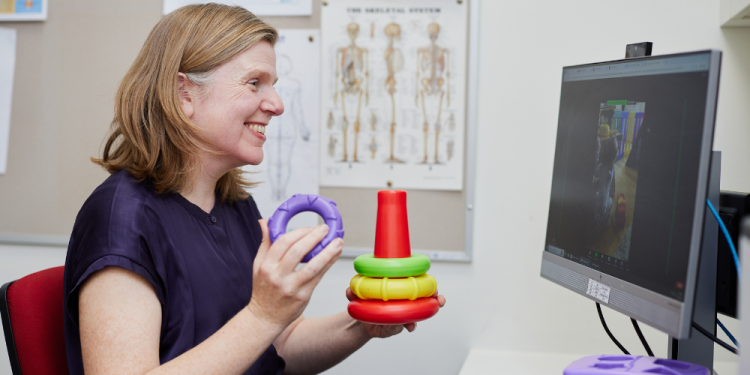
The birth of a premature baby is a significant challenge for parents. Not only are there concerns for the health and wellbeing of the child, but the experience can take a toll on the mental health of parents as well.
This is especially true when babies are born at less than 32 weeks, as this puts them at increased risk of experiencing developmental problems.
In a study called TEDI-Prem, researchers from the Women's are testing the effectiveness of an early intervention program to help support these vulnerable newborns and their parents.
They are also looking into the benefits of families receiving continuity of care from their birthing hospital after they go home with their baby.
As part of the study, a physiotherapist or occupational therapist works with parents to provide activities which will promote their child’s development. There are face-to-face sessions in the participating hospitals’ nurseries and regular telehealth video sessions for parents at home.
Lead Researcher Professor Alicia Spittle said the goal of these sessions is to improve child development (particularly motor skills, thinking, and talking) as well as parents’ mental health.
“For families of babies born preterm, it is important that we support both the baby and their caregiver/s to maximise outcomes,” Prof Spittle said.
“Telehealth has many benefits for families as we can see the baby playing in their own environment and it reduces travel time.”
The TEDI-Prem study could provide a new model for early intervention and continuity of care, with the use of telehealth making this support accessible to families from remote or rural areas.